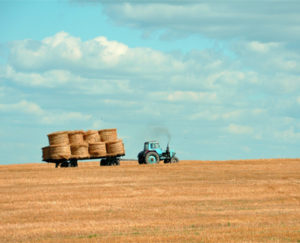Agriculture accounts for around 0.7% of the UK’s GDP and a little over 1% of total employment. The comparable figures for the EU as a whole are, respectively, 1.6% and 5%. But, as a trade policy issue, agriculture carries a weight and level of contentiousness that is disproportionate to its economic size. This is largely because discussions on agriculture have found a way of intersecting with an eclectic range of often emotive, policy issues including: food security and safety, rural development, environment, animal welfare and even culture.
The Uruguay Round of trade negotiations, that concluded in 1994 with the establishment of the WTO, brought agriculture under the discipline of trade rules. However, trade interventions still abound. Average MFN tariffs applied by the EU (and thus presently by the UK) are around 14% (compared to around 6.3% for all goods), and nearly 22% of agriculture tariff lines have duties of 15% or higher. Under the EU’s Common Agricultural Policy (CAP), a range of different types of payments and subsidies are made to farmers, though the value of these has been declining. OECD data show that agricultural support, measured as total transfers from consumers and taxpayers to farmers as a result of government policies, was around 21% of gross farm receipts in 2016, down from over 30% in 2002.
Once it leaves the EU, the UK will need to decide whether it liberalises tariffs on a multilateral or preferential basis, and what sort of subsidies it will implement.Extricating the UK’s commitments on these from the EU’s at the WTO will present challenges to both parties. Decisions on payments will require a wider debate on the public costs and benefits of these subsidies.







